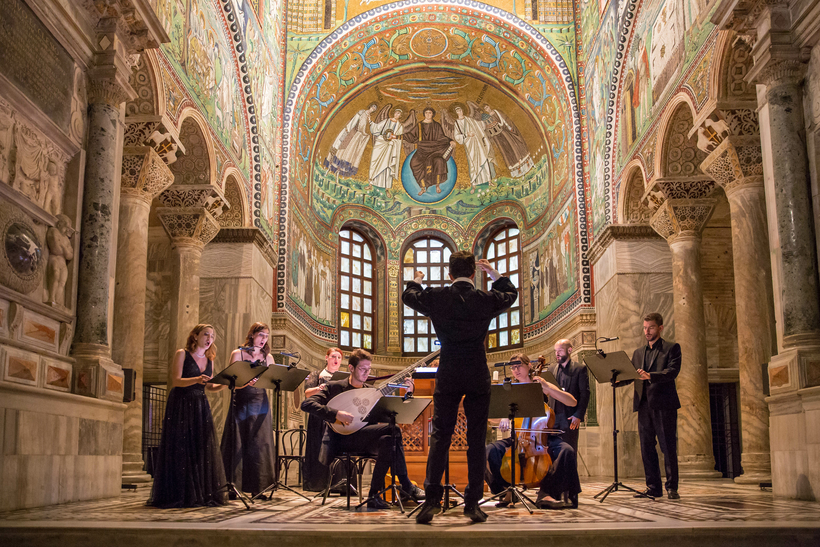For classical singers, the thaw has begun. In mid-May in the German city of Wiesbaden, the Austrian bass Günther Groissböck sang songs of Schubert and Mahler to an audience capped at not even 200 in a Baroque jewel box that seats 1,000. With a Wagner encore—Wotan’s Farewell—the artist gave a wistful salute to the new Ring cycle at the Bayreuth Festival he was to have dominated this summer. But no, the annual Wagner rapture (founded by the master himself) is on sabbatical for 2020, courtesy of the pandemic.
The equally prestigious, artistically kaleidoscopic Salzburg Festival, on the other hand, is scrambling to salvage what it can of its especially ambitious centennial season. An abbreviated program for August is expected shortly. There, as everywhere else on our radar, the management has strict public-health protocols to contend with.
South of the Alps, we note stirrings, too. For three decades, the Ravenna Festival, on the shore of the Adriatic, has curated a richly adventurous bazaar of international attractions. This year’s edition opened on June 21 with Riccardo Muti leading his Luigi Cherubini Youth Orchestra in a mostly-Mozart concert at the Rocca Brancaleone. Through July 30, some 40 further events have just been announced, the lion’s share at this same fortress, a somber Venetian relic dating to the 15th century. In this plague year, other prime locations seem to be out of bounds. Sacred music amid the Byzantine mosaics of the city’s holy places, formerly a jewel in Ravenna’s crown, is pretty much down to a single program. The bad news is that the program, entitled “O Oriens” (O, Rising Sun), at the resplendent Basilica di San Vitale on June 30, is closed to the public; the good news is that it will made generally available online. And local patrons will have plenty more to explore, from Handel’s oratorio Il Trionfo del tempo e del disinganno (The Triumph of Time and Disillusionment) to Charlie Chaplin’s City Lights, accompanied live by the Orchestra Arcangelo Corelli.
From August 8 to 20, the Rossini Opera Festival in nearby Pesaro celebrates the city’s most illustrious native son with his early one-act farce La cambiale di matrimonio (The Marriage Contract)—more amuse-bouche than pièce de résistance. The performers onstage will practice social distancing, as will the orchestra, spread out across the entire parterre of the auditorium, leaving nothing but box seats for spectators, the lucky few. Other than that, Juan Diego Flórez and fellow bel canto specialists have been booked for a series of tempting recitals.
And in Rome, the Teatro dell’ Opera is mounting a new Rigoletto on the palatial grounds of the Villa Borghese, starring a high-powered lineup of name-brand Italian talent. Vittorio Grigolo, who as a boy soprano in the Sistine Chapel Choir caught the ear of Luciano Pavarotti, steps out as the incorrigible Duke of Mantua. Rosa Feola sings his self-sacrificing victim, the virginal Gilda. Luca Salsi takes the title role of her father, the embittered court jester whose revenge on the playboy he works for goes hideously awry. Before the coronavirus, a hands-off realization of the violence and carnality of Verdi’s melodrama would have seemed a folly too self-defeating to attempt; but such is the current challenge facing Damiano Michieletto, the much-applauded director. Daniele Gatti conducts. Gatherings in the Eternal City being restricted to 1,000 people, tickets will be scarce; that total includes the cast, the orchestra, the running crew, and the entire front-of-house staff.

